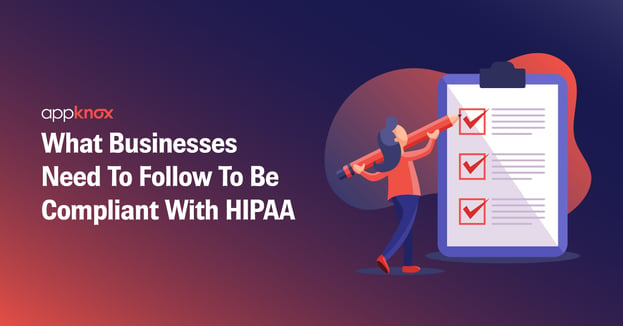
BLOG

BLOG
HIPAA stands for Health Insurance Portability and Accountability Act. This act is being incorporated to set the standard and protect sensitive patient data. If any company deals with protected health information (PHI), then it needs to ensure that all the required network, physical and other process security measures are there in place and are followed.
In this act, it will include anyone who provides treatment, payment and operations in healthcare which is covered entities (CE) and anyone with access to patient information and provides support in treatment, payment or operations namely the business associates (BA). Moreover, the subcontractors or business associates of business associates also need to be in compliance.
The Privacy Rule of HIPAA addresses the accessing, saving and sharing of medical and personal information of any individual and the Security Rule of HIPAA specifically outlines national security standards to protect health data created, received, maintained or transmitted electronically. This data is also known as electronic protected health information (ePHI).
A HIPAA compliant hosting provider have a certain administrative, physical and technical safeguards in place with accordance to the U.S. Department of Health and Human Service and so if you are hosting your data with, then you will get all those.
In 2009, a supplemental act called The Health Information Technology for Economic and Clinical Health (HITECH) Act was passed supporting the enforcement of HIPAA requirements and it raised the penalties of health organizations which will be imposed on violating HIPAA Privacy and Security Rules. This act was formed in accordance with the health technology development and increased use, storage and transmittal of electronic health information.
Quite a few updates and alterations are being planned to be incorporated into HIPAA. These updates could either become a part of the existing law or introduced as separate cybersecurity guidance. Some of these updates include:
The new and updated penalties and fines for HIPAA violations were introduced in 2019. The official documentation regarding the update was published in the month of April 2019. The document included details about the penalties which now consist of a tiered structure. The initial penalty for tier 1 is a whopping $25,000.
The year 2019 was a big one for HIPAA enforcement. The HIPAA Journal reported that more than $1.2 million was collected on an average as penalties from defaulters. Enforcement is certainly on a rise for HIPAA since 2018, and 2019 was not far behind. HHS OCR or the Health & Human Services Office for Civil Rights continued its stringent enforcement efforts in 2019 also. In the current COVID-19 scenario, however, the speed of enforcement might face a setback.
The permanent audit program is long overdue since the HHS spoke about it during the launch of Phase 2 of the HIPAA audit program. The organization had promised that it will be launched very soon. Somehow, the audit program has still not been launched and the structure is also not upgraded to a permanent structure.
The overuse and addiction of opioids in the USA is nothing less than an “epidemic” or a “crisis”. HIPAA’s new legislation is expected to introduce solid measures regarding this issue and help fight against this controversial topic. These changes might include additional compliance measures, regulations, and guidance on opioid prevention.
.jpg?width=50&height=50&name=10606600_10204086667262761_7381430219125488912_n%20(1).jpg)
